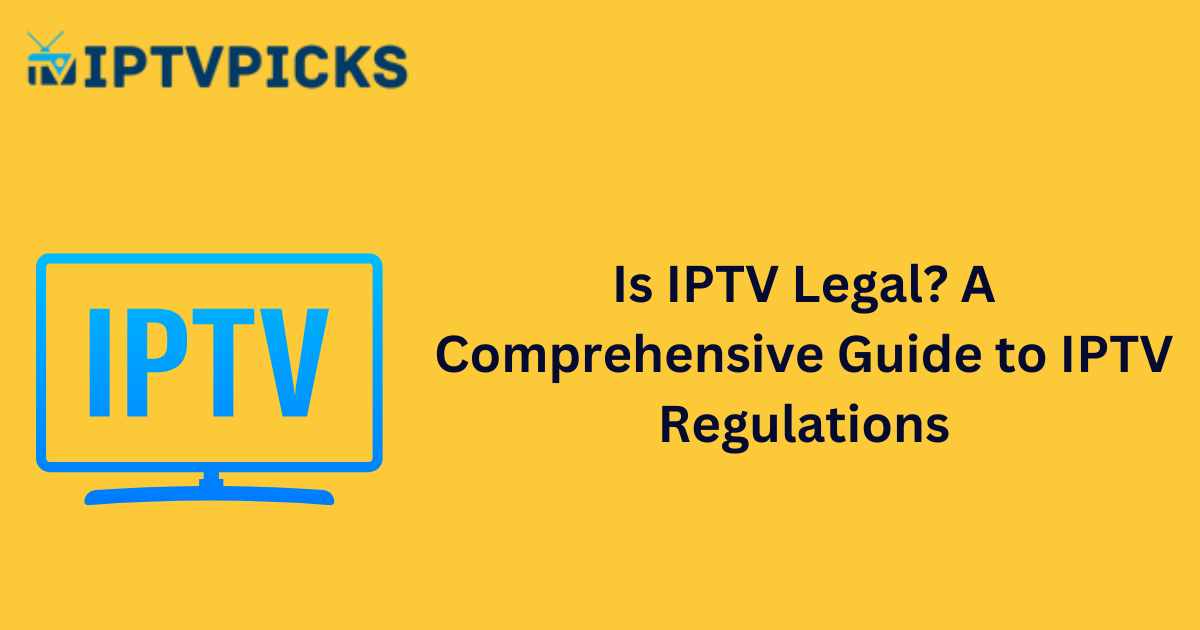Is iptv legal television has been a primary source of entertainment since the 1950s. Today, the landscape of video content delivery has evolved dramatically. The U.S. film industry, the largest by revenue globally, continues to expand as is iptv legal and other digital streaming technologies emerge. Here’s a deeper look into IPTV laws and their implications.
What is IPTV?
IPTV (Internet Protocol Television) is a technology that delivers television content over the Internet, unlike traditional methods like terrestrial, satellite, or cable broadcasting. Is iptv legal enables a personalized, interactive viewing experience by delivering a wide variety of content directly over the internet.
IPTV services provide a digital alternative to conventional broadcasting, allowing viewers to stream live TV shows and movies via their internet connection.
Types of IPTV
IPTV services offer various formats, tailored to diverse viewer preferences. Each type provides unique features that enhance the overall viewing experience.
1) Live Television:
Live IPTV streams real-time TV broadcasts, similar to traditional TV. This allows viewers to watch live sports, news, or events from any internet-connected device.
2) Video On Demand (VOD):
VOD allows users to select and watch movies or shows from a vast library whenever they want, independent of broadcast schedules.
3) Catch-Up TV:
Catch-Up TV lets users view previously aired broadcasts, enabling them to watch content they may have missed from earlier days or weeks.
Is IPTV Legal?
The legality of IPTV services can be intricate due to the variety of content and delivery methods.
Legal IPTV services operate under proper licensing agreements, ensuring they have the rights to stream content. These services comply with laws by obtaining permission from content creators or distributors.
Conversely, illegal IPTV services bypass these legal requirements, offering unlicensed content. Using such services poses risks to consumers and is a violation of copyright law.
IPTV Laws
IPTV laws vary across different regions, making it challenging to apply traditional broadcasting regulations to this modern technology. Generally, IPTV providers must navigate complex copyright, distribution, and consumer protection regulations.
Legal IPTV providers secure the necessary rights to distribute content, while illegal providers engage in unauthorized streaming, leading to legal consequences.
IPTV Law in the United States
In the U.S., IPTV is legal if the service operates under proper licensing agreements with content owners. U.S. laws focus on copyright and distribution regulations to govern the legality of IPTV services. The Copyright Act empowers legal action against unauthorized IPTV distributors, emphasizing the importance of selecting legal IPTV subscriptions.
IPTV Law in the United Kingdom
In the UK, IPTV services are considered legal when they comply with the country’s strict copyright and broadcasting laws. Illegal IPTV providers face harsh penalties, as seen in recent cases like the £21,000 fine for broadcasting Premier League matches without a license.
IPTV Law in Canada
In Canada, IPTV services must adhere to copyright and broadcasting laws. Legal IPTV services are regulated by the Canadian Radio-television and Telecommunications Commission (CRTC). Illegal services face severe penalties, including shutdowns and prosecution.
How to Identify Legal IPTV Services
- Check for Licensing: Ensure the service displays clear licensing agreements.
- Research Reviews: Look for positive feedback from reputable sources or trusted websites.
- Customer Support: Legal services provide professional customer support, indicating their commitment to legality and user satisfaction.
How to Spot Illegal IPTV Services
- No License Information: Lack of clear licensing details is a major red flag.
- Low Subscription Costs: Extremely low prices could indicate illegal operations.
- Anonymous Payments: Services relying on untraceable payment methods often signal illegality.
- Negative Reviews: Customer feedback questioning a service’s legality should be taken seriously.
Why You Should Avoid Illegal IPTV Services
- Security Risks: Illegal IPTV services may expose you to malware and viruses.
- No Customer Support: These services often lack customer support, leaving you without help in case of issues.
- Unreliability: Illegal services can disappear without notice, leading to sudden loss of access.
- Harm to the Creative Industry: By using illegal services, you contribute to the exploitation of content creators, which impacts the quality of entertainment.
FAQs
Is IPTV legal in the United States?
Yes, IPTV is legal in the U.S. if the service provider has secured proper licensing agreements with content owners.
What are the risks of using illegal IPTV services?
Using illegal IPTV services can expose you to security risks like malware, lead to financial losses due to the lack of support or reliability, and potentially involve legal consequences.
How can I identify if an IPTV service is legal?
Look for clear information about licenses, positive reviews from trusted sources, and professional customer support. These are strong indicators of legality.
Are there penalties for using illegal IPTV services?
Yes, consumers and providers of illegal IPTV services can face legal action, including fines and imprisonment.
What’s the difference between VOD and Live IPTV?
VOD allows you to watch content on demand from a library, while Live IPTV streams events and broadcasts in real-time.
















